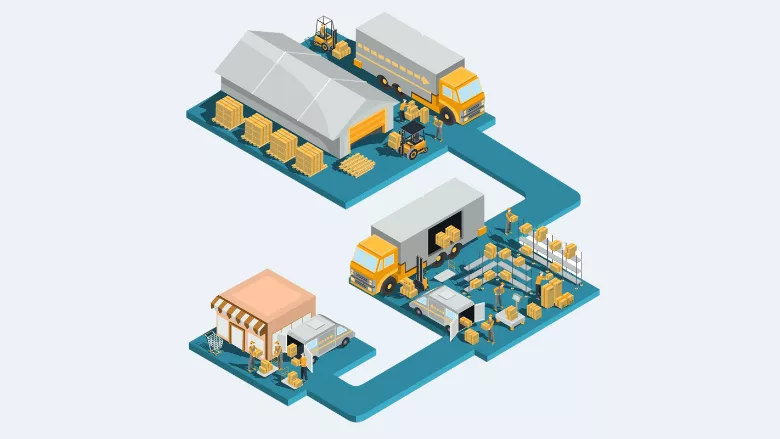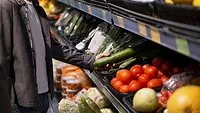Report Highlights Industry Concerns With FSMA 204 Compliance, Barriers to Implementation

Image credit: vectorpocket via Freepik
Industry concerns about compliance with the U.S. Food and Drug Administration’s (FDA’s) impending Food Traceability Final Rule, which fulfills Section 204(d) of the Food Safety Modernization Act (FSMA), have been brought to light in a recently released report based on a series of roundtable discussions conducted in spring 2024 by the Reagan-Udall Foundation.
FDA and the Reagan-Udall Foundation will hold a virtual public meeting on October 7, 2024 to review what was revealed through the roundtable discussions and provide further opportunity to offer feedback. Registration is required.
Timeline and Partnership for Implementation
Compliance with the Food Traceability Final Rule is expected by January 20, 2026. Although participants agreed on the value of enhanced traceability, in the roundtable discussions, many suggested a staggered approach be taken to compliance because downstream sectors of the supply chain (purchasers) rely on information provided by partners further up the supply chain (suppliers) to implement full traceability as prescribed in the final rule. Stakeholders suggested that staggering implementation by sector or company size could enable industry to capitalize on learnings shared along the supply chain or between large and small entities. Sector-by-sector implementation, beginning at the start of the supply chain and progressing through to retail, could also create a roadmap to compliance.
Progress has already been made on one action item brought up during the roundtable discussions—a public-private partnership to support effective and consistent implementation of the final rule, bringing together industry, state regulators, and public health agencies, that is inclusive of all sectors and company sizes. The formation of such a partnership was announced on September 4, for which the initial member sign-on period has begun. The newly launched Partnership for Food Traceability (PFT) will bring together all parts of the supply chain to make critical FSMA 204 implementation decisions and define a shared vision for food traceability. Alongside industry representatives from all points in the supply chain, PFT will include participation from FDA, state, and local officials, enabling industry and regulators to share knowledge while working to advance traceability.
Barriers to Implementation
One major issue raised by roundtable participants is the low level of awareness of the final rule and its specific requirements, particularly among small- and medium-sized suppliers, foreign suppliers, non-chain restaurants, companies unattached to an industry association, and certain industry sectors. Some companies may not be aware of the fact that compliance with the final rule will fundamentally change some of their business practices, holding the mistaken belief that their current operations are sufficient to meet the requirements of the final rule. Participants called for more education and prescriptive direction on specific requirements, such as for tracking key data elements (KDEs), to improve understanding of the final rule, and to ensure that multiple interpretations do not exist. Stakeholders were also anxious for assurance that regulators at all levels are aware of their role in enforcement.
Looking for quick answers on food safety topics?
Try Ask FSM, our new smart AI search tool.
Ask FSM →
A specific requirement of the final rule was cause for concern among roundtable participants; that is, the use and sharing of Traceability Lot Codes (TLCs) to identify a food product as it moves along the supply chain. Questions were raised about the necessary level of labeling and tracing activity; the lack of standardization for TLCs; the reliance on label viability; and the accuracy and flexibility around defining, capturing, and sharing TLCs. Participants expressed the need to better define what information is needed for TLCs, the intersection of lot-level and case-level tracking, and best practices for capturing and storing accurate details.
Operationally, food warehouse management poses significant challenges to FSMA 204 implementation. At present, not all warehouse management systems are capable of capturing all KDE data points without major overhauls that could take years to complete. Distributors closer to the end of the supply chain may face much more complexity in handling KDEs than other entities—complexities that their management systems are not equipped to handle—as they may carry thousands of different items covered by the final rule, and because some pallets may contain mixed lots or products. The final rule requires food product recipients to share TLCs and TLC source information with FDA, which stakeholders widely interpreted to mean that every case of food must be labeled and scanned to produce the required data, thereby significantly increasing labor, equipment, and space costs. Solutions like the use of “most likely” lot codes, or the use of probability calculations instead of explicitly scanning every product, were suggested.
Useful Technology and Helpful Concept Testing
Technology systems that may aid compliance with the final rule were discussed; such solutions will require intentional, multifaceted evaluation by industry prior to adoption. Participants noted that changes to the master data management process are needed for compliance, as are enhanced integration of systems used to capture data. Questions remain around realistic metrics, opportunities for data/technology standardization, navigating various levels of technical sophistication (from pen and paper to block chain), and what a successful system and output look like. Moreover, stakeholders expressed concerns about the sample FDA Electronic Sortable Spreadsheet that can be used to submit required information to the agency when requested; there is overall poor understanding of when the spreadsheet would need to be completed and whether small companies will be able to report the required information within the time allotted. Suggestions included improving the accessibility of template instructions, providing an example of a completed template for each supply chain sector, and testing the spreadsheet with real-world or simulated data.
Since release of the final rule in November 2022, multiple pilot programs have been conducted by industry to test current systems and identify necessary changes. Most of these pilots have been conducted independently and have focused on only one food product or category. Roundtable participants discussed the value of additional pilots, including integrated pilots scaled beyond a solitary product or facility. Suggestions also called for creating pilot templates, identifying spaces to actively share pilot learnings, and tailoring pilots to small, intermediate, and larger businesses.









